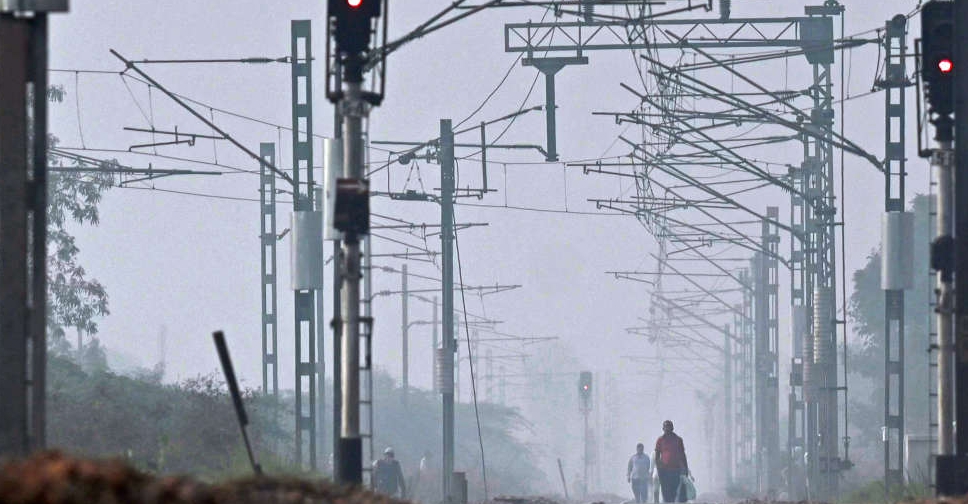
The air quality in India's capital worsened on Monday, with pollution levels rising to the highest this year, as low cool-season winds and more burning of stubble in neighbouring states combined to usher in a return of the annual scourge of bad air.
New Delhi is the world's most polluted mega-city and as a result, the average life span is down by more than 10 years, the University of Chicago's Energy Policy Institute said in August, adding that India was responsible for about 59 per cent of the world's increase in pollution since 2013.
"Delhi is facing the worst pollution levels of this season and the situation is unlikely to improve for the next few days," said a senior official at the according to the Ministry of Earth Sciences' SAFAR monitoring system.
The Delhi government has launched an anti-dust campaign to contain pollution, putting restrictions on construction work while sending out water-sprinkling machines to try to clear dust from the air.
But the air quality index (AQI) in the city of 20 million people, where few use air purifiers or wear masks to protect themselves, rose to 346 on a scale of 500, indicating "very poor" pollution conditions, according to the ministry's System of Air Quality and Weather Forecasting and Research.
Anything above 60 is considered unhealthy.
In some parts of the city, the AQI rose past the 400 mark, indicating "severe" pollution levels, government data showed.
The index measures levels of airborne PM2.5 particles that can be carried deep into the lungs, causing deadly ailments like cardiovascular disease and cancer.
The burning off of crop stubble in fields in neighbouring states, while less than last year, was contributing to the pollution in the capital, said the SAFAR official, adding that a drop-off in the wind was aggravating the problem.
The capital's more than 10 million vehicles, more than in any of India's other cities, compound the problem with their exhaust fumes.
"I'm facing breathing trouble. It feels like something is stuck in my throat," said resident Om Prakash Singh.

 UK inquiry finds 'chilling' cover-up of infected blood scandal
UK inquiry finds 'chilling' cover-up of infected blood scandal
 Iranian President Raisi killed in helicopter accident, state media says
Iranian President Raisi killed in helicopter accident, state media says
 ICC prosecutor seeks arrest warrants for Israeli, Hamas leaders
ICC prosecutor seeks arrest warrants for Israeli, Hamas leaders
 Assange given permission to appeal against US extradition
Assange given permission to appeal against US extradition
 Israel intends to broaden Rafah sweep, Defence Minister tells US
Israel intends to broaden Rafah sweep, Defence Minister tells US




